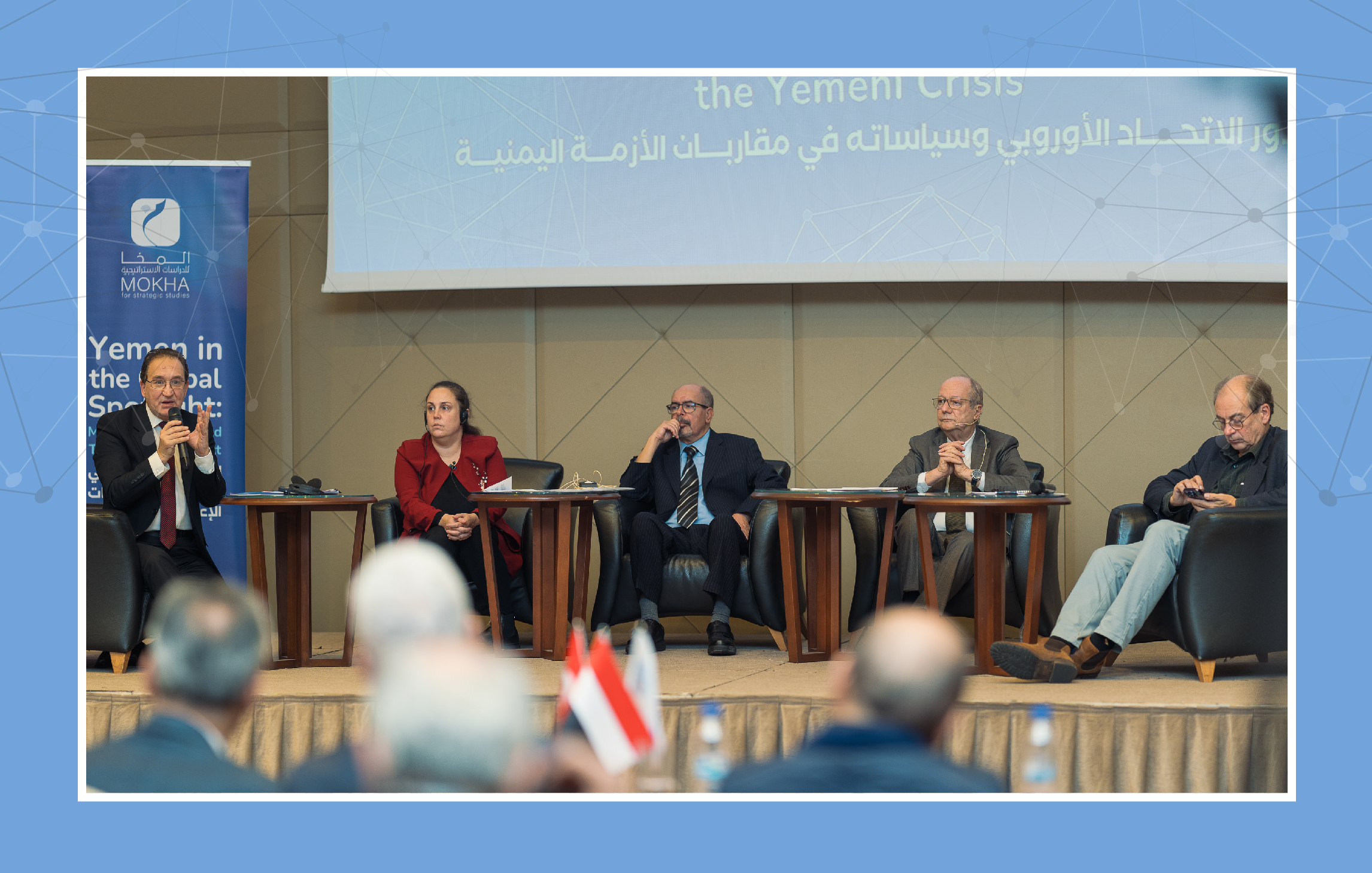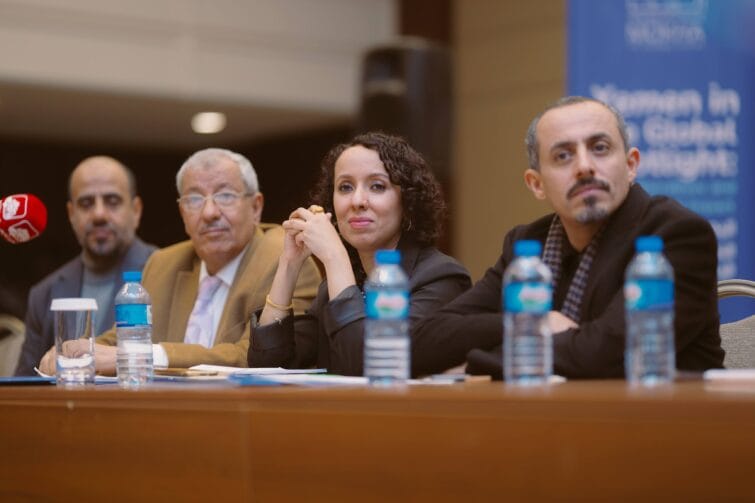Media, Politics, and Peace: Highlights from Day Two of the ‘Yemen in the Global Spotlight’ Conference

The second day of the conference “Yemen in the Global Spotlight: Media Narratives and Their Political Impact,” organized by the Mokha Center for Strategic Studies, featured in-depth and intensive discussions on the roles of international media and the United Nations in fostering peace. participants explored the influence of social media and innovative strategies to promote stability and development in Yemen.
In his address, Dr. Basem Hatahet emphasized the importance of media specialization and the need for professional media capable of making a meaningful impact in regional and international forums. He underscored the necessity of developing media strategies through integrated planning that includes understanding target audiences and utilizing effective methods of influence. Dr. Hatahet also attributed the responsibility of correcting Yemen’s stereotypical image to the Yemeni elites and government entities.
Veteran journalist Anwar Al-Ansi addressed the issue of bias in journalism, explaining that bias, whether conscious or unconscious, often stems from ideological, religious, or national affiliations. Al-Ansi highlighted the critical need for journalists to maintain neutrality and objectivity to ensure the credibility of media messages. He advocated employing statistical and strategic planning methods to analyze target audiences and determine optimal approaches for engagement. Al-Ansi outlined the challenges faced by Arab media, including funding constraints, lack of independence, and the gap between academic training and market demands.
Former Yemeni officer Hisham Al-Maqdashi presented a paper examining the dimensions of American strategy in Yemen. He traced the historical milestones of U.S. involvement and discussed Yemen’s significant geopolitical position. Al-Maqdashi noted that Yemen’s priority in Washington has diminished due to other global crises, such as the conflicts in Ukraine and Gaza. However, he highlighted that the Houthis have leveraged the Gaza conflict to draw renewed international attention to Yemen, prompting the United States to respond by collaborating with Gulf partners and Israel to safeguard international navigation in the Red Sea.
The conference also delved into the role of social media in reshaping global perceptions of Yemen. Social media researcher Roua Dakhil Allah emphasized the potential of these platforms to facilitate direct communication with the international community, thereby breaking the monopoly of traditional media. She highlighted the need to showcase Yemen’s positive aspects, such as its cultural diversity and rich heritage, which are often overshadowed by conflict-driven narratives. Dakhil Allah urged the production of balanced media reports that accurately depict Yemen’s political and social realities to counter negative stereotypes.
During the discussions, participants raised critical questions about building a compelling Yemeni narrative capable of influencing Western media and shifting the decades-old stereotypes perpetuated by traditional outlets.

The conference aspires to develop a comprehensive vision for Yemeni media based on professional standards and innovative strategies to address challenges and contribute to Yemen’s development and stability.

